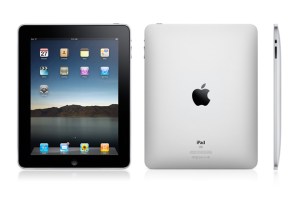
Technology giant Motorola has filed suit against Apple, claiming the company’s iPhone, iPod touch, iPad, and particular Macintosh computers violate a total of 18 Motorola patents. The complaints center on technology related to GPRS and Wi-Fi technology, along with WCDMA (3G) wireless communication and wireless antenna design; other alleged infringements concern Apple’s MobileMe cloud-based subscription service and Apple’s App Store.
“Motorola has innovated and patented throughout every cycle of the telecommunications industry evolution, from Motorola’s invention of the cell phone to its development of premier smartphone products, said Motorola Mobility corporate VP Kirk Dailey, in a statement. “After Apple’s late entry into the telecommunications market, we engaged in lengthy negotiations, but Apple has refused to take a license. We had no choice but to file these complaints to halt Apple’s continued infringement.”
The complaints relate to what Motorola characterizes as “early state innovations” that it claims Apple uses in several of its products, including technology related to wireless email, proximity sensing, device synchronization, software application management, and location-based services.
In addition to patent infringement claims, Motorola has also filed a complaint with the U.S. International Trade Commission. Motorola is seeking unspecified damages and wants a ban on Apple importing or selling the allegedly-infringing products in the U.S. market. The ITC complaint and portions of the patent infringement complaints was filed by Motorola Mobility—Motorola’s phone-making unit—before a District Court in Chicago. The remaining patent infringement complaints were filed in Chicago and Miami.
Motorola’s suit comes just after the company found itself the target of a patent infringement suit from Microsoft over its Android-based smartphones.
Editors' Recommendations
- Shopping at Apple this holiday season? You should know this
- iPhone 15 Pro overheating? Apple just issued a patch to fix it
- Check out this old news report of when Apple released the first iPhone
- Hermès removes all leather Apple Watch bands from its site
- Apple will pay $50M to settle the butterfly keyboard fiasco


